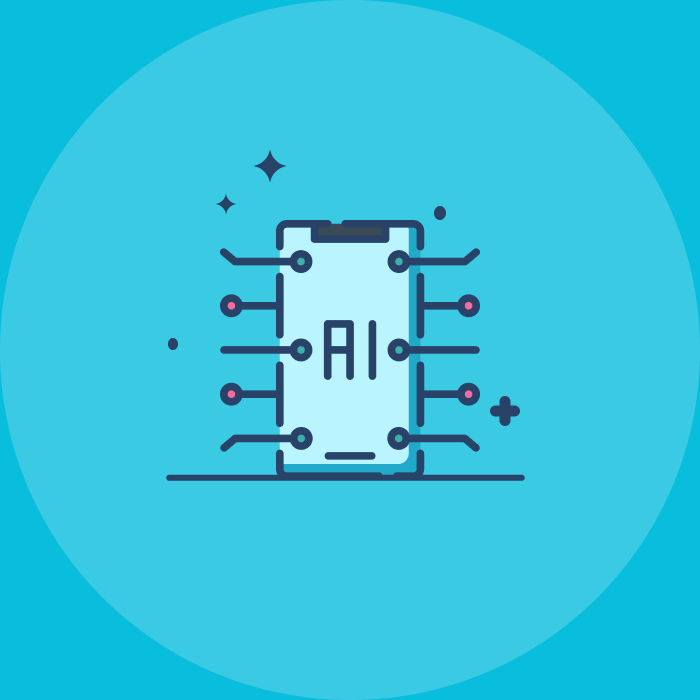Artificial intelligence is one of the leading technology components permitting digital transformation. Most of the businesses today are actively scouting ways in which AI can add value to their processes.
There is hardly a single hour that passes by when we are untouched by technology. We are constantly engaged with our mobile devices such as smartphones or tablets, except for when we are asleep. Whether it is work or going about our daily chores, technology has found its way into every aspect of our lives.
Contributing to this plot, companies are gearing up their operations to adopt enterprise mobility management to enhance the productivity and efficiency of their employees. Enterprise Mobility enables the company to encourage their employees to work anytime, from anywhere with access to data using their mobile devices.
This allows the employee to opt for ‘work from home’ or work from a remote client location while empowering the company to extract maximum output using technology.
While enterprise mobility is great, what truly warrants is its optimized use is the assimilation of Artificial Intelligence (AI) in the mobility management system. The applications with the prowess of perceiving the data/behavior, learning from it and hence improving operations or solving problems can lead the company to explore new potentials and attain higher efficiency.
Recommended: 7 Ways You Can Use AI To Develop Next-Gen Mobile Apps
With the introduction of AI assistants like Siri, Alexa and Cortana by the technology giants, we have witnessed the power of AI along with IoT (Internet of Things) and how it can create an impact on the way we carry out our basic errands.
When a company incorporates AI into its enterprise mobility management, it allows its employees to exercise BYOD (Bring Your Own Device) policies and hence saving on the resources cost while providing a more comfortable working environment to the employees.
Stats-facts about AI and EMM
● It is predicted that the annual global spending on AI will touch $57.6 billion by the year 2021 where the majority of the investment will come from healthcare, banking, retail, and manufacturing industries.
● As compared to 2018, where the global spending on AI was $2 billion, it will grow to $7.3 billion per year by 2022 as various industries will realize and adopt its potential to offer personalized customer service experience.
● Opposed to the expected fear, there is more hope among the general population (61%) regarding AI making the world a better place.
● While the implementation percentage of AI in enterprise mobility was just 4% in 2018, it is predicted to increase up to 46% in upcoming years as CIOs realize the potential of corporate growth by exploiting the features of AI-enabled EMM. – source Gartner
● As the general perception prevails, AI will eliminate 1.8 million jobs by 2020. However, it will create 2.3 million more jobs replacing them.
● Taking into consideration the corporate organizations which are digitally advanced and have adopted advanced digital practices, 47% of them have well-defined AI strategy into place.
● Lastly, the market size of BYOD and enterprise mobility is predicted to grow from $35.1 billion in 2016 to $73.3 billion by 2012 making AI an integral part of the enterprise’s digital infrastructure.
Reasons to assimilate AI into Enterprise Mobility
1. Ease of working digitally
While cloud computing is another advancement adopted by enterprises to make their data secure and accessible, combining it with AI enables the employees to work efficiently.
Smartphones having AI functionalities understand the user’s habits and work requirements. Prioritizing and rearranging the apps being used the most while also predicting the online searches are some of the advantages of AI-powered devices.
It optimizes the device’s performance by partly taking over the CPU to manage RAM and ROM. Whether the employee is working from his cabin, is on-field or is working from home, with AI-powered Enterprise Mobility Solutions, it becomes faster and easier.
2. Save up on resources
It is a known and confronted fact that we humans are more comfortable working with our own niche. With personal devices, we are familiar with its speed, its features, apps & docs saved and overall ease of using it.
These devices having AI functionalities and being familiar with the needs of the users accomplish any task faster. Understanding this compulsion, enterprises are adopting BYOD policies which enable the employee to work on their own devices.
This not only improves the productivity of the employee but also saves the operational cost for the employer as they don’t have to spend on providing devices to the employees.
3. Chatbots for employee experience
Enterprises are incorporating Chatbots into their system to offer better employee experience. Starting from sorting eligible candidates for interview to onboarding new employees and guiding them thereafter, AI-powered Chatbots maintains regular connection with employees through a conversational interface.
Combining ML and NLP with AI, Chatbots are even able to understand the sentiments of the user and hence guide them in achieving their maximum potential, in turn attaining better productivity for the enterprise.
4. Extending customer satisfaction
While enterprises do have a customer service department to look after the issues, having an AI-powered Appbot to address customer complaints can significantly improve customer satisfaction.
It collects and analyses the previous records of the customer and the concerned product. With the ability of reasoning and providing the most relevant solutions, Appbot can enable an enterprise to create an ecosystem of happy customers.
5. Learned problem-solving approach
AI works on the ability to process and analyze large data and predict relations based on learning. The data mining and predictive analysis is the field for which the enterprises can exploit the powers of AI.
With its learning algorithm, AI analyses the insight, understand the hindsight and predict the foresight. This also enables it to provide better solutions to problems and having satisfactory results.
6. Security from cyber hackings
As the digitization increases, so does the cybercrimes. The incorporation of AI into enterprise mobility will enable the company to avoid and act promptly against any such cyber-attack. Mobile App Security has been a subject of debate over the last few years.
AI analyses communications and is able to detect unusual behavior and possible threats. This enables the system to stay on alert and automate security response. Hence, adding an extra layer of security to the enterprise and its operations.
Conclusion
The future holds a sea of opportunities for the one ready to grab it. With technology digitizing the corporate sphere, introduction of AI in enterprise mobility will build a pathway for an advanced, effective and comfortable working ecosystem.
We hope you had a great time reading this article and it will help you to solve all your burning issues. If you still have any questions or suggestions related to this blog, then feel free to ask them in our comment section. Thank You.!
Subscribe to weekly updates
You’ll also receive some of our best posts today






